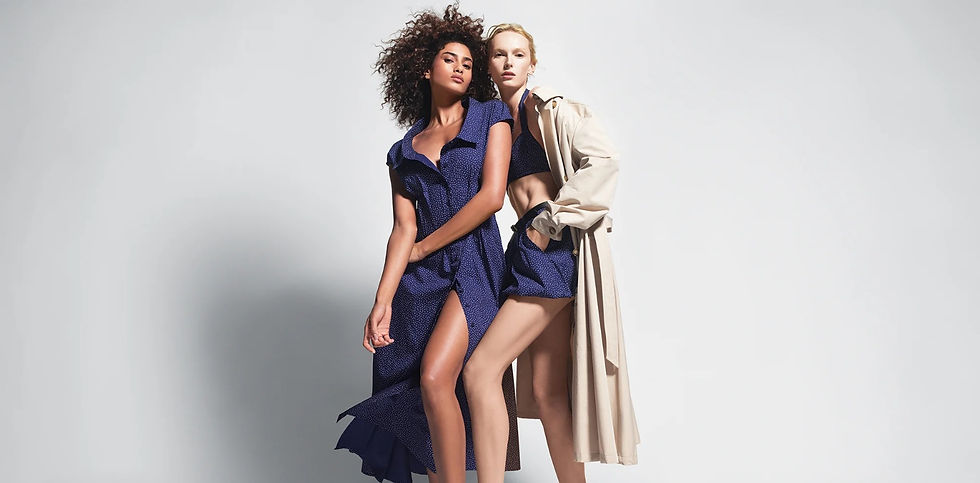Wimbledon: The enduring appeal of tennis fashion
- ontargetmedia8
- Jun 28, 2023
- 3 min read
As the iconic tournament returns, Katie Wright looks back at tennis style throughout the decades.

When players take to the court for this year’s Wimbledon Championships, they’ll adhere to a strict all-white dress code, stating that no more than 1cm of any other colour can be visible on their clothing.
The rule (which also dictates that off-white or cream shades aren’t allowed) dates back to 1890, but the outfits worn nowadays are a far cry from those seen in the early days of the tournament – especially for women.

“The original women’s tennis look consisted of a floor-length dress with long sleeves and a high neckline,” explains David Hewitt, head of retail, merchandise and licensing at Wimbledon.
It wasn’t until the Twenties – when French champion Suzanne Lenglen made waves with her shockingly short (at the time) calf-length dress and bare arms – that tennis clothing started to loosen up.

Another French player, René Lacoste, introduced his iconic polo shirts in the Thirties and skirt hems continued to rise through the decades.
By the Forties, women were wearing shorts on the court, and by the Fifties what we now think of as the ‘classic’ tennis fashion look – a white top and pleated miniskirt – was born.

From then on, tennis style evolved with the fashion trends of the day – from extra-mini dresses in the Sixties and big collars in the Seventies to baggy polo shirts in the Eighties, and minimalist dresses in the Nineties.

Certain era-defining players became known for their distinctive on-court style.
In the Seventies, Billie Jean-King favoured colourful dresses (when she wasn’t at Wimbledon), while in the following decade Steffi Graf often wore jazzy prints and her trademark scrunchie.

Russian player Anna Kournikova got a huge amount of attention in the Nineties and Noughties, when sleek, sporty dresses were all the rage.

But the ultimate tennis fashion icon has got to be Serena Williams, who changed the game with her boundary-pushing jumpsuits, neon dresses and tutu skirts.
Even at Wimbledon, the record-breaking 23-time Grand Slam winner showed off some eye-catching, fashion-forward looks while still adhering to the white clothing rule.

Right now, it’s the timeless tennis look that is having a fashion moment.
It started on the Miu Miu autumn/winter 2022 catwalk, where models wore pleated micro-mini skirts and preppy polo shirts.
The luxury label, headed up by legendary designer Miuccia Prada, has continued to include tennis-esque skirts in subsequent collections, sparking many a high street dupe.
Now the ‘tenniscore’ trend is proving popular with Gen Z on TikTok and a pleated mini is a spring/summer must-have.
Trend-setting celebrities, such as singer Dua Lipa and models Hailey Bieber and Bella Hadid, have been spotted in the tennis trend – with no rackets in sight.
Even the Princess of Wales, who is patron of The All England Lawn Tennis and Croquet Club, has been rocking the tenniscore look.
Kate recently donned a white sleeveless polo shirt, skirt and jacket from the official Wimbledon clothing collection, while learning about the club’s ball boys and girls alongside 20-time men’s singles Grand Slam winner Roger Federer.
“Whilst it originated as an upper-class trend, tennis fashion has now become available to all, which undoubtedly contributes to its enduring popularity,” says Hewitt.
“What sets tennis fashion apart is that it is not simply a trend but a classic look that transcends time.”

Wimbledon Women’s Core Performance Tank Green, £40; Women’s Core Performance Skort Green, £55; Sweatband Large Single Green, £8

Ellesse Women’s Ranaldi Dress White, £50; Sento Visor White, £12










